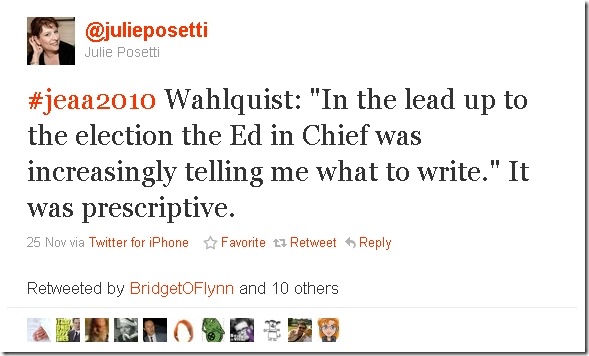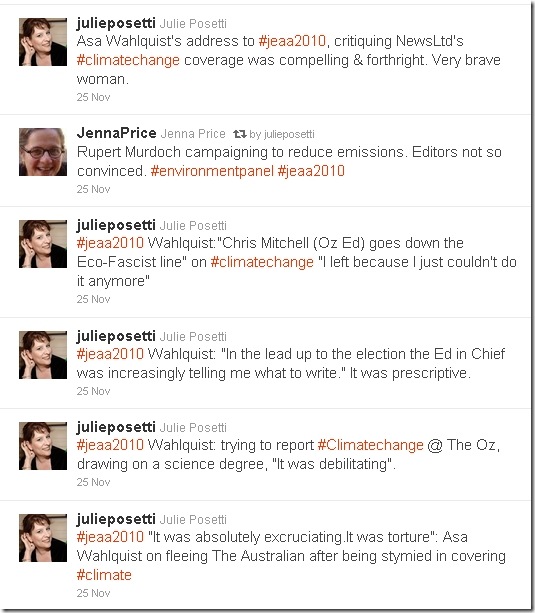Home » news
Category Archives: news
Talking about Coronavirus/covid19 and misinformation online
I spoke with Hilary Smale on ABC Perth Radio’s Focus program this morning about Coronavirus/ COVID19 and the challenges of misinformation (or what’s now called an ‘infodemic’ on social media). You can hear the program here: https://www.abc.net.au/radio/perth/programs/focus/corona-reset/12046430 (I’m on at about 29.30 in the recording).
My main advice to all social media users remains: slowing down and checking in with known credible sources *before sharing* is vital in stopping misinformation spreading rapidly online (even that sharing is done with the best of intentions).
Locally, the most reliable source remains the WA Health Department, and their specific page with up-to-date COVID19 information, here: https://ww2.health.wa.gov.au/Articles/A_E/Coronavirus
Their official daily snapshot comes in a particularly shareable visual form:

[Example of WA Health Department COVID-19 Infographic for 10 March 2020.]
Nationally, the Australian Government’s Department of Health website remains the best national resource for reliable information (despite, to be fair, a really unfriendly website): https://www.health.gov.au/health-topics/novel-coronavirus-2019-ncov.
Finally, the World Health Organization (WHO) not only provides a reliable global overview but also, vitally, addresses many online rumours about COVID-19 and answers with known facts! https://www.who.int/emergencies/diseases/novel-coronavirus-2019/advice-for-public/myth-busters
[Examples of World Health Organisation Mythbusting Images, 10 March 2020.]
2014 & Press Comments…
 In reflecting on the year and my quite sporadic blogging (and that’s being generous), it occurred to me that this is in large part because of the amount of time and energy that goes into talking with journalists in the last few years. In 2014 I provided commentary for 31 media stories: 7 newspaper or online stories; 4 TV interviews; and 18 radio interviews. I also wrote a couple of Conversation pieces, and a story for Antenna. This is definitely my preferred ratio: the more radio the better, as it’s almost always live and I feel a lot more in control of the way what I say is actually reported! While is seems a bit boring and self-serving to continually report here when I’ve provided press comments (and something better suited to Twitter), I’ve nevertheless added a media section above so that my public comments are at least available in a central place beyond my CV.
In reflecting on the year and my quite sporadic blogging (and that’s being generous), it occurred to me that this is in large part because of the amount of time and energy that goes into talking with journalists in the last few years. In 2014 I provided commentary for 31 media stories: 7 newspaper or online stories; 4 TV interviews; and 18 radio interviews. I also wrote a couple of Conversation pieces, and a story for Antenna. This is definitely my preferred ratio: the more radio the better, as it’s almost always live and I feel a lot more in control of the way what I say is actually reported! While is seems a bit boring and self-serving to continually report here when I’ve provided press comments (and something better suited to Twitter), I’ve nevertheless added a media section above so that my public comments are at least available in a central place beyond my CV.
My 2014 output was actually down a bit on 2013, when I was interviewed for 38 media stories (19 were print or online; 15 radio interviews; and 4 TV spots). In 2014 I was probably a little pickier about which stories I spoke on, which was influenced both by the rougher media experiences in 2013 as well as me doing a more strategic job of marking out times to focus on my academic writing only. As 2015 kicks off, I’m still going to try and be available to talk about online communication with the press, as I still firmly believe it’s important for academics to try and be public facing and engage with public debate. I’m sure I’ll tweet the better stories, but I’ll also try and keep the media section more or less up to date.
[Photo by reynermedia CC BY]
News and Trolls: Olympic Games Coverage in the Twenty-First Century
I’m at MediaCityUK in Salford for the annual Association of Internet Researchers conference (IR13) and today gave the first of three papers I’m involved with. Today’s was part of a great pre-conference session organised by Holly Kruse. My talk was called “News and Trolls: Olympic Games Coverage in the Twenty-First Century”; it’s very much a work in progress, but the slides are embedded below in case anyone’s interested.
Sadly I didn’t record the audio, so the slides may lack contextualisation.
Digital Culture Links: August 22nd
Links – catching up – through to August 22nd:
- Instagram 3.0 – Photo Maps & More [Instagram Blog]– Instagram releases a substantial new update for iOS and Android, adding a new photo maps feature. If the user chooses to do so, the photo maps places all geotagged photos onto an interactive map of the globe which can be navigated by Instagram users’ contacts.
Instagram 3.0 – Photo Maps Walkthrough from Instagram on Vimeo.While the maps function is being rolled out with very clear warnings about revealing locations publicly – with tools to remove geotags from some, groups or all photos – this rollout will no doubt remind (and shock many) users that the geographic tags on their photos mean that these aren’t just photos – they’re important and complex assemblages of data that can be reused and repurposed in a variety of ways.
- Google to push pirate sites down search results [BBC – Newsbeat] – “Google is changing the way it calculates search results in an effort to make sure legal download websites appear higher than pirate sites. The world’s biggest search engine announced the change in a blog post on its website. The move has been welcomed by record companies in the UK and Hollywood film studios. Movie and music firms have complained in the past that Google should have been doing more to fight piracy. They say searching for an artist, song or film often brings up pages of illegal sites, making it hard to find a place to download a legal version. From next week, search results will take into account the number of “valid copyright removal notices”. Sites with more notices will rank lower, although Google has not said what it considers a valid notice.”
- Gotye – Somebodies: A YouTube Orchestra [YouTube]– Fantastic remix by Gotye, using a huge range of fan remixes of Somebody that I Used to Know and mashing them together. Comes with a full credits list, too: http://gotye.com/reader/items/original-videos-used-in-somebodies-a-youtube-orchestra.html (A great example for Web Media 207.)
- Facebook removes ‘racist’ page in Australia [BBC News] – “A Facebook page that depicted Aboriginal people in Australia as drunks and welfare cheats has been removed after a public outcry. The Aboriginal Memes page had allowed users to post jokes about indigenous people. An online petition calling for the removal of “the racist page” has generated thousands of signatures. The government has also condemned it. The page’s creator is believed to be a 16-year-old boy in Perth, reports say. “We recognise the public concern that controversial meme pages that Australians have created on Facebook have caused,” Facebook said in a statement to local media. A meme is an idea that spreads through the internet.”
- Twitter ‘sorry’ for suspending Guy Adams as NBC withdraws complaint [Technology | guardian.co.uk] – “Twitter on Tuesday reinstated the account of a British journalist it suspended for publishing the email address of an executive at NBC, which had been attracting a significant amount of incoming fire over its Olympics coverage. The incident has not done Guy Adams of the Independent much harm. Apart perhaps from a little hurt pride, he has returned to the twittersphere with tens of thousands of new followers. For NBC, it was another blow to its already battered reputation over its coverage of the London Olympic Games. But Twitter found itself in a deeply unfamiliar situation: as the subject of one of the firestorms of indignation that characterises the platform, but which are usually directed at others.”
- Murdoch’s tablet The Daily lays off nearly a third of its staff [Media | guardian.co.uk] – “The Daily, Rupert Murdoch’s tablet newspaper, has laid off close to a third of its staff just 18 months after its glitzy launch. Executives at the News Corp-owned title told its 170 employees on Tuesday that 50 of them would be let go. Sources told the Guardian that security staff were brought onto the Daily’s editorial floor at News Corp in New York to escort the laid-off employees out of the building. Earlier this month the paper’s editor-in-chief Jesse Angelo denied reports that the media giant had put the title “on watch” and was considering closing it. In a statement Tuesday Angelo said the title was dropping its opinion section and would be taking sports coverage from Fox Sports, also part of News Corp, and other partners. In another cost-saving move the title will also stop producing pages that can be read vertically and horizontally on a tablet, sticking to straight up and down.”
- If Twitter doesn’t reinstate Guy Adams, it’s a defining moment [Dan Gillmor | Comment is free | guardian.co.uk] – “Once again, we’re reminded of a maxim when it comes to publishing on other people’s platforms: we publish at their sufferance. But there’s a corollary: When they take down what we publish, they take an enormous risk with their own futures.
This time, Twitter has suspended the account of a British journalist who tweeted the corporate email address of an NBC executive. The reporter, Guy Adams of the Independent, has been acerbic in his criticisms of NBC’s (awful) performance during the Olympics in London. Adams has posted his correspondence with Twitter, which claims he published a private email address. It was nothing of the kind, as many, including the Deadspin sports blog, have pointed out. … What makes this a serious issue is that Twitter has partnered with NBC during the Olympics. And it was NBC’s complaint about Adams that led to the suspension. That alone raises reasonable suspicions about Twitter’s motives.”
Digital Culture Links: December 15th
Links, catching up through to December 15th:
- What Louis CK knows that most media companies don’t — Tech News and Analysis – Good round up of Louis CK’s online non-DRMed release of “Live at the Beacon Theater”. While a direct plea to fans didn’t prevent pirate versions altogether, CK’s fantastic online sales and healthy profit within 4 days show that this is a huge success (and arguably the torrent versions may still be helping with publicity).
- Facebook riot page: Danny Cook jailed for 30 months [BBC News] – “A man has been jailed for 30 months for creating a Facebook group page called “Letz start a riot”. Danny Cook, 22, of Marlpool Place, Kidderminster, admitted intentionally encouraging or assisting in the commission of theft or criminal damage. Worcester Crown Court heard he made the Facebook page during the August riots. The judge, Mr Justice Butterfield, said: “I would be failing in my public duty if I did not impose a substantial custodial sentence.””
- Louis CK – Live at the Beacon Theater Statement – Comedian Louis CK released his new standup video “Louis C.K. Live at the Beacon Theater” online for $5 via PayPal, available anywhere in the world, which in his words has “No DRM, no regional restrictions, no crap. You can download this file, play it as much as you like, burn it to a DVD, whatever.” A bold experiment in doing away with any sort of rights restrictions or DRM, Louis CK has released a statement thanking his fans and showing that this experiment has been a huge success. After just 4 days of sales: “As of Today, we’ve sold over 110,000 copies for a total of over $500,000. Minus some money for PayPal charges etc, I have a profit around $200,000 (after taxes $75.58).”
- Google buys licensing firm RightsFlow [guardian.co.uk] – “Google is getting serious about paying artists royalties for songs that are used as soundtracks or videos on YouTube. The company said on Friday that it has acquired RightsFlow, a New York-based company that will help it identify the owners of music that people use in videos they post. “YouTube has had a long-standing commitment to solving the really tough challenges around online copyright – how to manage content rights in a quickly evolving technology world,” said David King, YouTube’s product manager, in a blog post. “We’ve already invested tens of millions of dollars in content management technology such as Content ID. We want to keep pushing things forward.” The deal should help YouTube, part of Google, manage the complex relationship it has with content owners, who are rarely consulted when their work is put online for free.”
- No Copyright Intended [Waxy.org] – Great post from Andy Baio on the immense confusion around copyright and remix: “These “no copyright infringement intended” messages are everywhere on YouTube, and about as effective as a drug dealer asking if you’re a cop. It’s like a little voodoo charm that people post on their videos to ward off evil spirits. How pervasive is it? There are about 489,000 YouTube videos that say “no copyright intended” or some variation, and about 664,000 videos have a “copyright disclaimer” citing the fair use provision in Section 107 of the Copyright Act. […] On YouTube’s support forums, there’s rampant confusion over what copyright is. People genuinely confused that their videos were blocked even with a disclosure, confused that audio was removed even though there was no “intentional copyright infringement.” Some ask for the best wording of a disclaimer, not knowing that virtually all video is blocked without human intervention using ContentID.”
- (New) Twitter: Yours to discover – Twitter’s official announcement of the new interface. It’s a bit busier, with more of a nod towards larger social networking sites, shifting away from the focus on the trademark tweet brevity. Mashable has some useful notes on the new version.
- Judge Hits Blogger with $2.5 Million Charge for Not Being a Journalist – In a case that’s sending a frightening message to the blogger community, a U.S. District Court judge ruled that a blogger must pay $2.5 million to an investment firm she wrote about — because she isn’t a real journalist. As reported by, Judge Marco A. Hernandez said Crystal Cox, who runs several blogs, wasn’t entitled to the protections afforded to journalists — specifically, Oregon’s media shield law for sources — because she wasn’t “affiliated with any newspaper, magazine, periodical, book, pamphlet, news service, wire service, news or feature syndicate, broadcast station or network, or cable television system.” The Obsidian Finance Group sued Cox in January for $10 million for writing several blog posts critical of the company and its co-founder, Kevin Padrick. Obsidian argued that the writing was defamatory. Cox represented herself in court.”
- H&M;’s New Lingerie Models Are Computer-Generated [The Cut – NY Mag] – “The models fronting H&M;’s new holiday lingerie campaign are unreal, literally. Jezebel translated an article from Swedish newspaper Aftonbladet in which H&M; press officer Håcan Andersson confirms that their new lingerie-clad bodies are “completely virtual.” For H&M;’s website or catalogues, much of the store’s clothing is now shot on mannequins, which are then humanized via photo-editing software — which explains the eerily uniform pose now increasingly commonplace online.H&M; also shot real models for the campaign, but only to superimpose their heads on the standard body form. Aptly, H&M; calls them “facial models,” who are apparently aware of their abridged role in the finished catalogue shots.”
- PS3: Delete Browser Cookies and Cache [Technipages] – Useful if iView is buggy on PS3 in Australia.
- Swiss Govt: Downloading Movies and Music Will Stay Legal [TorrentFreak] – “One in three people in Switzerland download unauthorized music, movies and games from the Internet and since last year the government has been wondering what to do about it. This week their response was published and it was crystal clear. Not only will downloading for personal use stay completely legal, but the copyright holders won’t suffer because of it, since people eventually spend the money saved on entertainment products. In Switzerland, just as in dozens of other countries, the entertainment industries have been complaining about dramatic losses in revenue due to online piracy. In a response, the Swiss government has been conducting a study into the impact downloading has on society, and this week their findings were presented. […] The report states that around a third of Swiss citizens over 15 years old download pirated music, movies and games from the Internet. However, these people don’t spend less money as a result …”
- Many Online Book Buyers First Shop Around in Stores [NYTimes.com] – “Bookstore owners everywhere have a lurking suspicion: that the customers who type into their smartphones while browsing in the store, and then leave, are planning to buy the books online later — probably at a steep discount from the bookstores’ archrival, Amazon.com. Now a survey has confirmed that the practice, known among booksellers as showrooming, is not a figment of their imaginations. According to the survey, conducted in October by the Codex Group, a book market research and consulting company, 24 percent of people who said they had bought books from an online retailer in the last month also said they had seen the book in a brick-and-mortar bookstore first. Thirty-nine percent of people who bought books from Amazon in the same period said they had looked at the book in a bookstore before buying it from Amazon, the survey said.”
- Zynga Sets Offering Price at $8.50 to $10 a Share [NYTimes.com] – “Zynga set the price range for its initial public offering at $8.50 to $10 a share, a highly anticipated debut that could value the company at $7 billion. At the top end of that range, the company, a four-year-old online game maker, is on track to raise $1 billion, which would make it the largest United States-based Internet offering since Google in 2004. […] Zynga, unlike many of its peers, is churning out a profit, a crucial selling point as it starts its road show on Monday. It recorded earnings of $30.7 million for the first nine months of this year, on revenue of $828.9 million. The company, which makes the bulk of its money from the sale of virtual goods, is the top game maker on Facebook, with some 227 million monthly active users. Its latest franchise, Castleville, which started about two weeks ago, has already attracted about 20 million users on Facebook, according to AppData, a site that tracks online games.”
- 9 In 10 Moms Are Facebook Friends With Their Kids [All Facebook] – “While 90 percent of mothers are friends with their children on Facebook, 46 percent of them restrict their kids’ access to their profiles, according to a study by the publisher of Parenting and Babytalk magazines. This percentage is significantly higher than what we’ve seen in a Kaplan survey of teens, about 65 percent of whom said they are Facebook friends with their parents. We wonder whether the moms have a more idealized view of things, but it’s possible that some of these mothers might have separate, made-up aliases for befriending their kids on Facebook. Meanwhile, other findings from the email survey of 1,146 mothers by The Parenting Group are: 33 percent of mothers allowed their children to create Facebook pages by age 12, despite the age limit of 13 set by the Children’s Online Privacy Protection Act and the social network’s own rules. 73 percent of moms who aren’t Facebook friends with their kids monitor their Facebook usage by accessing their pages as someone else.”
- Facebook Extends Maximum Status Update 12-Fold [All Facebook] – “Facebook has extended the maximum length of status updates to 60,000 characters, 12 times what it used to be. Perhaps this move intends to offset the site’s recently announced plan to end support of RSS in the Notes application.The change might offer longer thoughts better visibility in the news feed than the old Notes had. However, longer statuses don’t jibe with the ticker, which tends to clip posts after a period mark.”
- PS3: Delete Browser Cookies and Cache [Technipages] – Useful if iView is buggy on PS3 in Australia.
- Fail! Qantas red-faced after Twitter campaign backfires [Perth Now] – Social media #fail: “It probably seemed like a great idea in the marketing meeting. But a social media campaign in the midst of a bitter industrial battle spilling over to thousands of angry passengers has backfired for Qantas. The airline posted a seemingly innocent tweet this morning using the hashtag #qantasluxury asking for entries to a competition with suggestions for a dream in-flight experience: @QantasAirwaysTo enter tell us ‘What is your dream luxury inflight experience? (Be creative!) Answer must include #QantasLuxury. Little did they know just how “creative” – and angry – the responses would be as Twitter users seized the opportunity to have their say in their hundreds. While many of the tweets were sarcastic, most were from passengers unhappy with the state of the airline or who had experienced the disruption first-hand. timwattsau#qantasluxury was being abandoned at Heathrow for 4 days in the snow with no customer support while trying to get home to 8mo pregnant wife!”
Digital Culture Links: December 13th 2010
Links for December 7th 2010 through December 13th 2010:
- The state, the press and a hyperdemocracy [Unleashed (Australian Broadcasting Corporation)] – Mark Pesce provokes a much larger debate about Wikileaks … is it really ‘the press’? “WikiLeaks is the press, but not the press as we have known it. This is the press of the 21st century, the press that comes after we’re all connected. Suddenly, all of the friendliest computers have become the deadliest weapons, and we are fenced in, encircled by threats – which are also opportunities. This threat is two-sided, Janus-faced. The state finds its ability to maintain the smooth functioning of power short-circuited by the exposure of its secrets. That is a fundamental, existential threat. In the same moment, the press recognises that its ability to act has been constrained at every point: servers get shut down, domain names fail to resolve, bank accounts freeze. These are the new selection pressures on both sides, a sudden quickening of culture’s two-step.”
- The Atlantic Turns a Profit, With an Eye on the Web [NYTimes.com] – The Atlantic turns a profit by thinking digitally, and employing bloggers: “How did a 153-year-old magazine — one that first published the “Battle Hymn of the Republic” and gave voice to the abolitionist and transcendentalist movements — reinvent itself for the 21st century? By pretending it was a Silicon Valley start-up that needed to kill itself to survive. The Atlantic, the intellectual’s monthly that always seemed more comfortable as an academic exercise than a business, is on track to turn a tidy profit of $1.8 million this year. That would be the first time in at least a decade that it had not lost money. Getting there took a cultural transfusion, a dose of counterintuition and a lot of digital advertising revenue. “We imagined ourselves as a venture-capital-backed start-up in Silicon Valley whose mission was to attack and disrupt The Atlantic,” […] “In essence, we brainstormed the question, ‘What would we do if the goal was to aggressively cannibalize ourselves?’””
- Angry Birds, Flocking to Cellphones Everywhere [NYTimes.com] – “It sounds like a tough sell: a game that involves catapulting birds at elaborate fortresses constructed by evil pigs. But Angry Birds, a hit game by Rovio, a small Finnish company, is one of the unlikeliest pop-culture crazes of the year — and perhaps the first to make the leap from cellphone screens to the mainstream. Angry Birds, in which the birds seek revenge on the egg-stealing pigs, is meant to be easily played in the checkout line and during other short windows of downtime — but some players have trouble stopping. Rovio says people around the world rack up 200 million minutes of game play each day. (Put another way, that is 16 human-years of bird-throwing every hour.) The game has inspired parodies, homages and fervent testimonials. Homemade Angry Birds costumes were big hits on Halloween. Conan O’Brien demonstrated the game in a YouTube video promoting his new show, and a sketch from an Israeli TV show about a birds-and-pigs peace treaty was popular online ….”
- Assange And WikiLeaks Have Parallels With Spycatcher [SMH] – Malcolm Turnbull on Wikileaks: “Governments and politicians should be careful not to make a martyr of Assange and fools of themselves. Julia Gillard’s claim that Assange had broken Australian laws, when it is clear he has not, demonstrates how out of her depth she is. One may well ask whether her denunciations would be so shrill if the documents had been handed to a powerful newspaper group – if the contents were being dribbled out by The Australian, would she be accusing Rupert Murdoch of high crimes and misdemeanours? Assange is an Australian citizen. No matter how much the government disapproves of his actions, it should make it clear that he is entitled to return to Australia if he wishes and to receive consular assistance if the charges of sexual assault proceed in Sweden.”
- Wikileaks and the Long Haul [Clay Shirky] – Some thoughts from Clay Shiry regarding Wikileaks which are well worth reading: “Over the long haul, we will need new checks and balances for newly increased transparency — Wikileaks shouldn’t be able to operate as a law unto itself anymore than the US should be able to. In the short haul, though, Wikileaks is our Amsterdam. Whatever restrictions we eventually end up enacting, we need to keep Wikileaks alive today, while we work through the process democracies always go through to react to change. If it’s OK for a democracy to just decide to run someone off the internet for doing something they wouldn’t prosecute a newspaper for doing, the idea of an internet that further democratizes the public sphere will have taken a mortal blow.”
The Australian Vs Julie Posetti (over a tweet!)
So, today’s big news is that Chris Mitchell, the editor-in-chief of The Australian, is going to sue journalism academic Julie Posetti for defamation over a twitter tweet in which she quoted a former The Australian journalist, Asa Walhquist, speaking at the Journalism Education Association Australia conference, as saying Mitchell had increasingly told her what to write with regard to environmental stories. Here’s the tweet in question:

Walhquist has reportedly denied that the Posetti quote is accurate, but it mustn’t be that hard to check with a conference full of journalists – surely someone was recording the conversation? Julie Posetti is a prolific twitter user and a journalism academic at the University of Canberra and I suspect she’d know a lot better than to misquote someone, even in a tweet. For the record, here’s a screenshot of the tweets surrounding the one that offended Mitchell:

Beyond the question of whether defamation has actually occured, the big story here is the recognition implicitly made by Chris Mitchell that commentary on Twitter is now a big deal!
Update: Andrew Dodd’s report covering the same talk in Crikey tells the same story and thus supports Posetti’s position.
Update 2 (Monday, 29 Nov 2010): An ABC story reports that audio recorded at the conference demonstrates that Posetti accurately quoted Walhquist in the contentious tweet! (You can follow developments via the #twitdef hashtag on Twitter. You can hear an mp3 recording here (on the ABC website).)
Update 3 (Tuesday, 30 Nov 2010): Jonathon Holmes has posted ‘140 characters of legal nightmare’ on The Drum at it’s well worth reading as it highlights some of the legal complications that come from Twitter, real-time ‘reporting’ and the challenges of context and the way contexts shift.
Digital Culture Links: November 1st 2010
Links for October 25th 2010 through November 1st 2010:
- WikiLeaks on the wars in Iraq and Afghanistan [The New Yorker] – “Whether WikiLeaks will prove over time to be a credible publisher of such truths is another question. Assange disclosed the names of informants in some of the war reports, even though doing so might endanger them and possibly cause their death. […] If the organization continues to attract sources and vast caches of unfiltered secret documents, it will have to steer through the foggy borderlands between dissent and vandalism, and it will have to defend its investigative journalism against those who perceive it as a crime. Assange is animated by the idea of radical transparency, but WikiLeaks as yet lacks a fixed address. Nor does it offer its audiences any mechanism for its own accountability. […] if WikiLeaks cannot learn to think efficiently about its publishing choices, it will risk failure, not only because of the governmental opponents it has induced but also because so far it lacks an ethical culture that is consonant with the ideals of free media.”
- MI6 chief red over daughter’s Facebook shot [The Age] – This seems a ridiculous media beat-up to me: “British spy chief John Sawers is facing public embarrassment after his daughter posted a photo of herself posing with a gold Kalashnikov rifle on Facebook. Oxford graduate Corinne Sawers, 23, is seen standing in front of a family Christmas tree holding the gold-plated weapon – similar to those found among Saddam Hussein’s treasures after the 2003 Iraq invasion – in her profile pictures, The Sunday Mirror reports. The gun is a decommissioned Kalashnikov and is believed to have been a gift to Corinne’s father, MI6 boss Sir John, as a memento of his time in Iraq. All of Corinne’s 873 Facebook friends, and tens of thousands of their friends globally, can see her gun-toting picture on the networking site.”
- New Zealand is still Middle-earth: A summary of the Hobbit crisis [Observations on film art] – An outstanding summary by Kristin Thompson of the issues surrounding the ill-advised actors’ boycott of Peter Jackson’s The Hobbit, the subsequent debates, deliberations and the eventual change in New Zealand’s laws to accommodate the production and any other films with budgets of $NZ150 million (James Cameron is supposedly looking at shooting Avatar 2 and 3 there). If nothing else, the whole debate shows just how deeply tied New Zealand is not with Middle Earth, both metaphorically and emotionally.
- LimeWire file-sharing site shut down in US [BBC News] – “An injunction issued by the US district court in New York has effectively shut down LimeWire, one of the internet’s biggest file-sharing sites. It ends four years of wrangling between the privately-owned Lime Group and the Recording Industry Association of America (RIAA). The injunction compels Lime Group to disable its searching, downloading, uploading and file trading features. The firm plans to launch new services that adhere to copyright laws soon. Visitors to the LimeWire website are confronted with a legal notice that reads: “This is an offical notice that LimeWire is under a court ordered injunction to stop distributing and supporting its file-sharing software.””
- Tweeting celebrities in dash for cash [SMH] – “Australian celebrities are being offered as much as $10,000 for a single tweet endorsing products to their thousands of Twitter followers, say sponsorship experts. But while the US celebrities like Kim Kardashian, Lindsay Lohan and Snoop Dogg are reportedly already enjoying large one-off payments to promote brands and products on Twitter, the dash for cash is yet to take hold here. The celebrities need only post a one-line product endorsement in exchange for the fee, and according to Britain’s Marketing Week, Range Rover approached 40 British celebrities this week to tweet in a similar way about the recently unveiled Evoque 4×4 in the UK. Bruce Kaider, president of Sponsorship Australasia and founder of a sports management company, confirmed that high profile Australian sportspeople were already being approached to endorse products on Twitter for fees of anything between $500 to $10,000 per tweet.”
- Facebook and Farmville dominate 3’s mobile broadband data [Technology | guardian.co.uk] – Zynga and Farmville second only to Facebook in UK mobile network traffic: “The mobile network 3 has released the first in a series of research papers describing traffic use and behaviour among its mobile broadband customers, published here first by the Guardian. Of the 2,500 terabytes of data used across the network in July, it’s no surprise that Facebook (by several metrics now the most popular website in the world) came out top, accounting for 7.023 terabytes of data use across the network. 3 says the data, from more than 1 million customers, is specifically from mobile broadband or dongles, which evidently have moved far beyond primarily business use; 3 claims its users account for 40% of the dongle market. […] The surprise is that casual gaming company Zynga is second only to Facebook in volume of data used at 3.584 terabytes, while Zynga’s own flagship game, Farmville, is listed fifth with 1.68 terabytes for the month.”
- Go beyond the PC, Microsoft urged [BBC News] – “Microsoft must think beyond the PC if it is to weather the changes due to hit in the next five years. The warning was given by Microsoft’s chief software architect Ray Ozzie in a memo penned soon after he announced he was leaving the company. […] he said, the strengths that had helped Microsoft grow in the past now risked holding it back. The memo, called “Dawn of a New Day” mirrors one Mr Ozzie wrote soon after taking over from Bill Gates as the man in charge of charting the development direction of Microsoft’s portfolio of programs. That first memo imagined a world of seamless computing and kicked off Microsoft’s attempts to get its many different programs working together across lots of different devices. In Dawn of a New Day, Mr Ozzie praised the work Microsoft had done towards that end, but said rivals had done even better.”
- A Labor Issue Entangles ‘The Hobbit’ [NYTimes.com] – The real battle for Middle Earth: “Is Wellywood burning? New Zealand’s feisty film workers have taken to the streets this week to try to keep Peter Jackson’s production of “The Hobbit” in their country, nudging the prime minister, John Key, toward a Tuesday summit meeting with a visiting contingent of Warner Brothers executives. Filming had been threatened by a dispute over whether a New Zealand branch of an Australian union could engage in collective bargaining on the Hollywood films, which they have not been able to do in the past. As of Tuesday afternoon in Wellington — the New Zealand capital and the center of a growing movie industry sometimes called Wellywood — the matter was unsettled. But it was clear that Mr. Jackson’s furry little film creatures were not going anywhere without a fight.”
- Sony Kills The Cassette Walkman On The iPod’s Birthday [Gizmodo Australia] – Steve Jobs killed the cassette playing star? “After 30 years, Sony has announced that they will stop manufacturing and selling the venerable cassette Walkman. In a poetic twist, the official death of the Walkman also lands on the iPod’s 9th anniversary. The Sony Walkman was introduced on July 1, 1979 in Japan and it was a major breakthrough in delivering a low-cost portable stereo. […] Over its 30 year history of the Cassette Walkman, Sony sold 200 million units. A portable music player became a part of our lives, largely in part of the Walkman.”
Digital Culture Links: September 6th 2010
Links for August 30th 2010 through September 6th 2010:
- The future of the internet: A virtual counter-revolution [The Economist] – A good overview article which looks at the potential “balkanisation” or fragmenting of the internet into different walled gardens of various sorts. The article focuses on three trends: national governments asserting their power in various ways to regulate their citizens’ access to the web; big IT companies building different walled gardens, from Facebook’s social network to Apple’s regulated iOS and App store; and lastly the push to by big internet providers for tiered internet provision and the push back in the form of net neutrality. (This is a short but useful overview of these issues for teaching purposes.)
- Computers as Invisible as the Air [NYTimes.com] – Useful historical reminder: “The personal computer is vanishing. Computers once filled entire rooms, then sat in the closet, moved to our desks, and now nestle in our pockets. Soon, the computer may become invisible to us, hiding away in everyday objects. A Silicon Valley announcement last week hinted at the way computing technology will transform the world in the coming decade. Hewlett-Packard scientists said they had begun commercializing a Lilliputian switch that is a simpler — and potentially smaller — alternative to the transistor that has been the Valley’s basic building block for the last half-century. That means the number of 1’s and 0’s that can be stored on each microchip could continue to increase at an accelerating rate. […] This is the fulfillment of Moore’s Law, first described in the 1960s by Douglas Engelbart & Gordon Moore, which posits that computer power increases exponentially while cost falls just as quickly”
- Stephanie Rice apologises for ‘offensive Tweet’ [TV Tonight] – “Channel Seven personality and Olympic swimmer Stephanie rice has apologised for a comment she made on her Twitter feed which has been branded as homophobic. After the Wallabies’ win over the Springboks in South Africa on Saturday night, Rice tweeted; “Suck on that f**gots”, adding; “Probs the best game I’ve ever seen!! Well done boys.” Rice has since removed the comment and apologised. “I made a comment on Twitter last night in the excitement of the moment,” she told news.com.au. “I did not mean to cause offence and I apologise. I have deleted it from the site.” Former NRL player, openly gay Ian Roberts slammed her actions. “She is an idiot and anyone who continues to endorse her as an athlete is an idiot as well,” he said. “And I say that with a very sad tone in my voice. What a fool.””
- YouTube Deal Turns Copyright Videos Into Revenue [NYTimes.com] – “Last month, a YouTube user, TomR35, uploaded a clip from the AMC series “Mad Men” in which Don Draper makes a heartfelt speech about the importance of nostalgia in advertising. Viewers wouldn’t notice, but that clip also makes an important point about modern advertising — YouTube is an increasingly fruitful place for advertisers. In the past, Lions Gate, which owns the rights to the “Mad Men” clip, might have requested that TomR35’s version be taken down. But it has decided to leave clips like this up, and in return, YouTube runs ads with the video and splits the revenue with Lions Gate. Remarkably, more than one-third of the two billion views of YouTube videos with ads each week are like TomR35’s “Mad Men” clip — uploaded without the copyright owner’s permission but left up by the owner’s choice. They are automatically recognized by YouTube, using a system called Content ID that scans videos and compares them to material provided by copyright owners.”
- Google’s Earth – William Gibson / Op-Ed Contributor [NYTimes.com] – An insightful and engaging look at today’s cyberspaces and Google’s Earth from William Gibson, over 25 years after he coined the term cyberspace: “We have yet to take Google’s measure. We’ve seen nothing like it before, and we already perceive much of our world through it. We would all very much like to be sagely and reliably advised by our own private genie; we would like the genie to make the world more transparent, more easily navigable. Google does that for us: it makes everything in the world accessible to everyone, and everyone accessible to the world. But we see everyone looking in, and blame Google. Google is not ours. Which feels confusing, because we are its unpaid content-providers, in one way or another. We generate product for Google, our every search a minuscule contribution. Google is made of us, a sort of coral reef of human minds and their products.”
- Introducing Wikileakileaks.org: Your Source for Wikileaks [Valleywag] – Gawker Media try and turn the transparency tables on Wikileaks’ secretive founder Julian Assange by setting up “Wikileakileaks.org: your source for Wikileaks-related secrets, documents and rumors!” The site aims to be an anoymous clearing house for Wikileaks-related material. While there is some merit on turning transparency back on its secretive champions, this also smacks of pettiness since, as Gawker admit, they’ve been blacklisted by Assange after an unfavourable reporting.
- Facebook’s now trying to trademark the word ‘face’ [Chicago Breaking Business] – It gets sillier: “Facebook, which has gone after sites with the word “book” in their names, is also trying to trademark the word “face,” according to court documents. But the social networking site has met with a familiar foe. As TechCrunch first reported, Aaron Greenspan has asked for an extension of time to file an opposition to Facebook’s attempt. Greenspan is the president and CEO of Think Computer, the developer of a mobile payments app called FaceCash. Greenspan, also a former Harvard classmate of Facebook chief executive Mark Zuckerberg, claimed he had a hand in developing the social networking giant. The case was settled last year. In an interview with CNNMoney.com, Greenspan said the two extensions he filed now give him until September 22 to oppose the “face” trademark attempt. The original deadline was June 23.”
Digital Culture Links: August 30th 2010
Links for August 27th 2010 through August 30th 2010:
- iPod sales drop to lowest quarterly number since 2006 [Business | The Guardian] – Sales of the traditional iPod are slowing in the face of the dramatic growth of iPhones, iPads and other competitor products. Apparently the music industry is concerned because they were betting on (presumably old-style) iPods to be the great saviour of the music industry, ensuring the next generation was downloading music legally, replacing slowing CD sales. The article also mentions the shift some canny bands have made to band-specific apps, meshing music and other experiences together via in bespoke applications, which better suit an iPhone/iPad environment. To be honest, nothing in this article should come as a shock, but it does point out that with 5 billion app downloads from the Apple store in just 2 years, this is definitely the peak growth area.
- The Trouble with the Fourth Estate [Snurblog] – A sobering but insightful analysis by Axel Bruns regarding the failings of political journalism and the limits of political blogging in Australia today. Axel argues that the ‘fourth estate’ is probably the wrong metaphor for political bloggers today, although they struggle perhaps to be a fourth branch at times, doing some work once in realm of good journalism. The short version, though: “we’re stuck in a muddle, where journalists won’t and bloggers can’t exercise the informative function with as much energy and commitment as it actually requires – and that’s a very problematic state of affairs, especially in a political situation that is as confusing as the one we now find ourselves in.”
- The Ballad of Cat Bin Lady: The Internet’s Latest Viral Villain [Mashable] – Coventry, England resident Mary Bale made a stupid decision when she pushed a local cat into a wheelie bin and shut the lid. By virtue of CCTV footage posted online, she was identified, named and shamed, and so forth. She’s become a meme, and a hated meme at that. But is the response too much? A ‘Death to Mary Bale’ Facebook group has just been shut down, suggested that in ‘citizen justice’ the penalties often vastly outweigh the crime.
- Facebook Trademark Lawsuit Aims to Limit Use of “Book” by Others [Mashable] – “Facebook has filed suit against Teachbook.com, an online community for teachers. The lawsuit accuses Teachbook of “misappropriating the distinctive BOOK portion of Facebook’s trademark.” The lawsuit argues that Teachbook’s use of “book” dilutes the Facebook (Facebook) brand name, impairs Facebook’s ability to remain unique and creates the facade of a false relationship between the two social networking entities. While Facebook does not own the rights to the word “book” in all its forms, the company believes its name trademark applies to the word “book” when used in connection with a website of similar purpose. Facebook also takes issue with the fact that Teachbook has attempted to trademark its name and makes claims about being “Facebook for teachers” on the Teachbook website.” (Oh noes: I’ve been using this trademark infringing NOTEBOOK all this time …)





